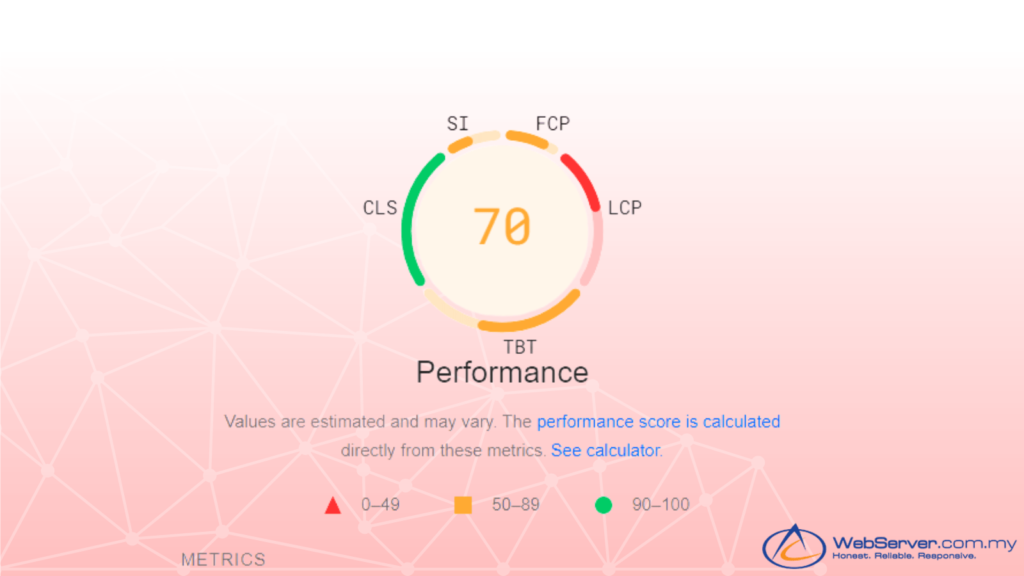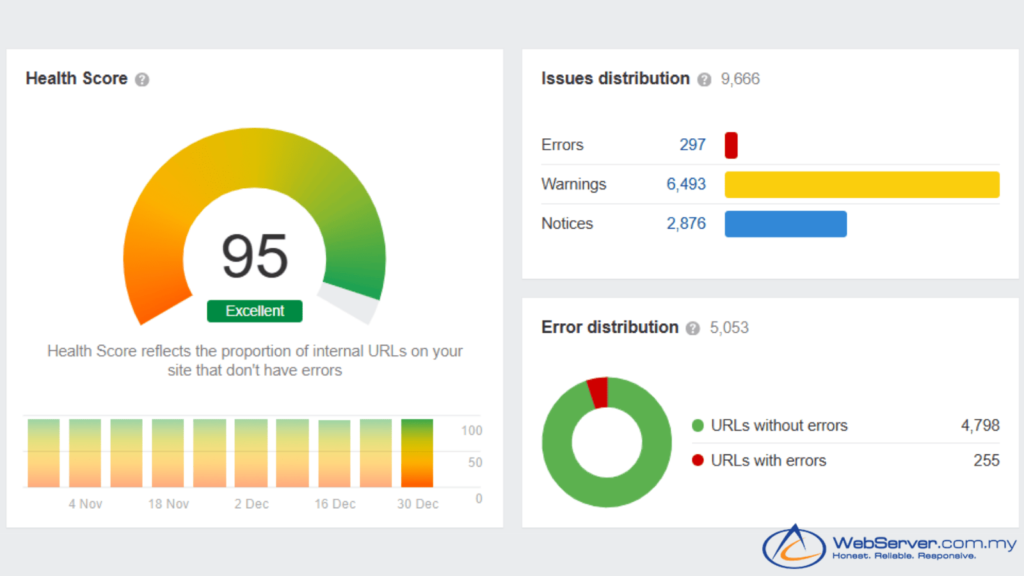-
Sales +603 2770 2833
- sales@webserver.com.my
Why do front-end developers use search engine optimisation (SEO) for websites?
Table of Contents
Toggle
Front-end developers influence a website’s appearance and its search engine identification in the modern world, where many websites are created. This is where Search Engine Optimisation, commonly known as SEO, enters the game. SEO principles is crucial for enhancing the visibility of web applications on search engine results pages. This article argues that there are several ways by which front-end developers can optimise their Web designs for SEO and boost their site traffic and user satisfaction.
Enhancing User Experience
Earlier, SEO was all about keywords; today, SEO is all about user experience. Such factors as page speed, responsiveness, and navigation greatly enhance user satisfaction and search engine rankings. When prioritising such components, front-end developers guarantee that the user goes through a good experience on the website, meaning not only will the time spent on the site be long, but the bounce rate will also be low, factors that are liked by search engines.
Fast Load Times
People expect Websites to be highly available, which means they want content to load quickly. Pages that take a long time to load often lead to high bounce rates, which reduce usability and affect SEO. Front-end developers use various strategies to minimise loading times, such as reducing the amount of code, optimising image sizes, and implementing browser caching. These practices improve user experience and positively impact search engine rankings by signalling that the site is well-optimised and efficient.
Mobile Responsiveness

Mobile internet will account for a higher percentage of overall internet usage. Thus, a mobile-friendly website is important. Front-end developers employ special techniques for designing the website properly on all devices and sizes. Due to the introduction of mobile devices such as smartphones, optimisation is a technical SEO factor whereby search engines such as Google reward websites optimised for mobile devices.
Intuitive Navigation
A clearly labelled and well-designed web page can facilitate user exploration and help search engines index the content. Prioritising a logical structure for the website’s content and navigation menus is crucial. These elements can be challenging for the target audience when seeking information and for search engine web crawlers.
Increasing Organic Traffic
Search engine optimisation, or SEO, done by a front-end developer leads to improved website ranking by search engines. This, in turn, results in higher organic traffic, a fundamental component for the success of any firm operating online. Increased visibility results in more people finding the website’s existence through search engines, thus cutting down the costs of pay-per-click.
On-Page SEO
Optimising on-page SEO is vital for search engines to understand the content of a page and encourage clicks from Google search. Front-end developers execute on-page SEO regarding title tags, meta descriptions, headers, and image alt attributes. These elements offer search engines important information about the website’s content, increasing its probability of occupying a better place in the search results list.
Keyword Integration
Effective keyword integration ensures that the website appears for relevant search queries. Front-end developers collaborate with content creators to incorporate keywords naturally into the website’s content, making it more likely to attract targeted traffic.
Improving Website Credibility

Users often perceive websites that rank higher on search engines as more credible and trustworthy. Implementing SEO best practices helps build this credibility, making the site more attractive to potential visitors. A well-optimised website with high search engine rankings signals to users that the business is reputable and authoritative in its field.
Quality Content
Search engines prioritise websites that provide high-quality, relevant content. Front-end developers work closely with content creators to ensure the website delivers valuable information that meets user intent, enhancing its credibility and authority.
User Trust
High search rankings foster user trust. When users see a website consistently appearing at the top of search results, they are more likely to view it as a trusted source of information, which can lead to higher engagement and conversions.
Targeting Specific Audiences
SEO allows developers to target specific audiences by optimising content for relevant search queries. This ensures that the website attracts visitors who are genuinely interested in the products or services offered. By understanding user intent and incorporating relevant keywords, front-end developers can help drive highly targeted traffic to the website, increasing the likelihood of conversions.
Localised SEO
For businesses targeting local audiences, localised SEO practices such as optimising for local keywords and creating localised content are essential. Front-end developers ensure the website is optimised for local search queries, helping the business attract customers from specific geographic regions.
Audience Segmentation
By analysing search data and user behaviour, front-end developers can help segment audiences and tailor the website’s content to meet their needs. This targeted approach improves user engagement and increases the likelihood of conversions.
Staying Competitive
In a highly competitive digital market, SEO is a key differentiator. Websites optimised for search engines have a significant advantage over those that are not, making SEO an essential tool for staying ahead of the competition. Regularly updating and optimising the website according to the latest SEO trends and algorithms helps maintain a competitive edge.
Competitive Analysis
Front-end developers use SEO tools to analyse competitors’ websites and identify opportunities for improvement. Understanding what works for competitors allows them to implement similar strategies to enhance the website’s performance.
Adaptability
SEO is an ever-evolving field. Front-end developers stay updated with the latest SEO trends and algorithm changes, ensuring that the website remains competitive in search engine rankings. This adaptability is crucial for maintaining and improving the website’s visibility.
Ensuring Accessibility
SEO practices often overlap with web accessibility guidelines. By following SEO best practices, front-end developers ensure that websites are accessible to all users, including those with disabilities. Accessible websites are a legal requirement in many regions and enhance the overall user experience, leading to better search engine rankings.
Semantic HTML
Using semantic HTML tags helps search engines understand the content better and improves accessibility for users who rely on screen readers. Front-end developers ensure the website’s code is clean and semantically correct, enhancing both SEO and accessibility.
Alt Text for Images
Providing descriptive alt text for optimise images helps with SEO and makes the website accessible to visually impaired users. Front-end developers include relevant keywords in alt text while ensuring that it accurately describes the image content.
Facilitating Better Collaboration
Understanding SEO helps front-end developers collaborate more effectively with SEO specialists and content creators. This synergy ensures that all website aspects are optimised for user experience and search engine visibility. A cohesive approach to SEO and front-end development results in a more efficient workflow and a more successful website.
Interdisciplinary Collaboration
Front-end developers, SEO specialists, and content creators collaborate to develop a comprehensive SEO strategy. This collaboration ensures that the website’s design, content, and technical elements align with SEO best practices.
Integrated Workflows
By integrating SEO into the development process, front-end developers can avoid costly and time-consuming revisions later. An integrated workflow ensures that SEO considerations are incorporated into every stage of the website development process.
Key SEO Strategies for Front-End Developers
Here’s SEO principles for front end developer.
- Clean Code: Simple code improves user experience and helps search engine crawlers index web pages efficiently. Avoiding unnecessary code and keeping the structure straightforward ensures fast website loading and better search engine understanding.
- Fast Load Times: To ensure fast-loading websites, front-end developers must focus on optimising images, leveraging browser caching, and minimising file sizes. Website speed optimisation significantly impacts website ranking, making performance optimisation crucial.
- Mobile Optimisation: Websites must be mobile-friendly since search engines prioritise mobile-responsive sites. With most users accessing the web via mobile devices, front-end developers must ensure a smooth mobile experience.
- Proper Redirects: Using the right redirects (301, 302) ensures smooth navigation, preserves link equity, prevents broken links, and maintains website SEO value.
- Structured Data: Structured data markup improves search result visibility by helping search engines understand content. This can increase click-through rates with rich snippets and enhanced search results.
- Optimised Images: To improve load times and SEO, reduce image sizes without compromising quality, use the right file formats, and add descriptive alt texts. Also, consider using lazy loading techniques to defer off-screen images for faster initial load times.
- Content Delivery Networks (CDNs): CDNs help reduce server load times by caching content closer to users, improving site speed and performance. Front-end developers should configure CDNs to enhance global accessibility and minimise latency.
Bottom Line
Thus, integrating these SEO principles, front-end developers can create web applications that perform well on social media sites and in search engines alike. Such an approach helps place the website at the top of the search or in the spotlight but also aids the website in thriving in the marketplace. Incorporating SEO at the frontier of front-end development guarantees that the sites are as pleasing as they are effective in search results.

WebServer.com.my, a business unit of a privately owned Acme Commerce Sdn Bhd was established in 1989. Specializes in the complex managed hosting services such as database hosting and mission critical application hosting since 1999.
-
Office Hour
+603 2770 2833 -
Extended
+603 2770 2803 -
Email
sales@webserver.com.my -
Technical Support
support@webserver.com.my
Switch The Language




